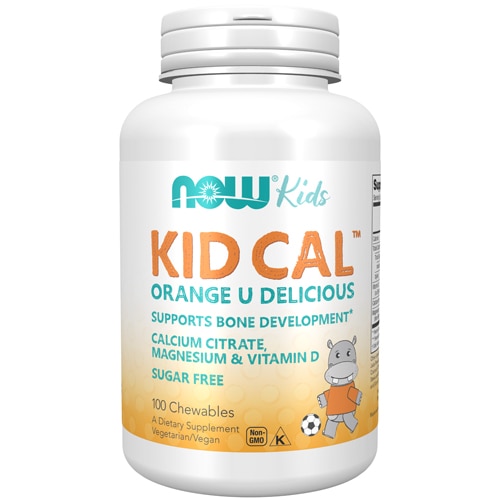In recent years calcium has been in the limelight because of controversial research that linked calcium supplements with heart disease. This has been a tempest in a teacup, brewing since 2010, when New Zealand research suggested too much calcium could increase the risk of heart attacks. In the decade since, observational studies and clinical trials have yielded mostly reassuring results about the safety of calcium supplements, concluding that they have no effect on cardiovascular risk. Not surprisingly, there were even some studies that linked calcium (from food or supplements) to lower coronary risk.† Now that calcium’s name has been cleared, here’s everything you need to know.
What is calcium?
Bones are living, active tissues that depend on calcium for bone health. Many other bodily functions, such as regulating heartbeat and blood pressure, conducting nerve impulses, allowing muscles to contract and helping blood clot, also depend on calcium. According to a Report of the Surgeon General on Bone Health, “The skeleton is also a storehouse for two minerals, calcium and phosphorus, that are essential for the functioning of other body systems, and this storehouse must be called upon in times of need.”
Bones constantly absorb and release calcium and other minerals, depending on many factors, such as hormones, physical activity, genetics and diet. Our bones continually change throughout our lives. From childhood through early adulthood, bones grow in length and width. Peak bone mass occurs typically in the early 20s. Then, in middle adulthood, the rate of bone loss exceeds that at which it is made.
What are the benefits of calcium?
Getting adequate calcium from childhood through early adulthood is important for bone health. Children need calcium to build strong bones and reach their full potential adult height. Adults age 50 and older are at risk of not getting enough calcium in their diets and can develop low bone mass, which putts them more at risk for osteoporosis. Some studies have found that consuming calcium in adulthood has a protective effect on bone density and fracture risk, but others have not. Since many factors play into bone health it’s hard to calculate the effect of taking a supplement. In general, taking calcium supplements in moderate doses is deemed safe and may be well worth it for the potential to increase bone mass.
How much calcium do I need?
In its 2010 guidelines on calcium, the Institute of Medicine (IOM) set the recommended dietary allowance (RDA) for women over 50 and men over 70 at 1,200 milligrams a day from food and supplements, and for other adults at 1,000 milligrams. Don’t exceed 1,000 to 1,200 milligrams of supplemental calcium a day. On days when you eat lots of calcium-rich foods, reduce or skip the supplement. If you consume excessive amounts of calcium, you may increase your risk of certain health problems.
Should I take calcium supplements?
Since the body does not produce calcium on its own, you need to get it through other sources. Of course, it’s better to get calcium from food than supplements because foods can supply many nutrients important for both bones and general health. However, the reality is that many people don’t eat calcium-rich foods often, which is why supplements have been recommended to make up for the gap. People should especially consider taking calcium supplements if they follow a vegan diet, limit dairy products due to lactose intolerance, have osteoporosis, are being treated with corticosteroids for the long term,or have certain digestive diseases that impair their ability to absorb calcium.
When should I take my calcium supplement?
Check the label to find out what kind of calcium the supplement contains. The two main types are calcium citrate and calcium carbonate. Calcium citrate can be taken with or without food. Calcium carbonate should be taken with food. Stomach acid produced while eating helps your body absorb calcium carbonate. Also, calcium is best absorbed when it's taken in smaller doses—600 milligrams or less at one time. If you take 1,000 mg of calcium a day, split it into two or more doses over the day.
What are good food sources of calcium?
Dairy foods are the leading sources of calcium, though many people struggle with digesting the lactose (milk sugar) in them. Dark leafy greens, including broccoli, contain a lot of calcium. Fish with bones, such as sardines and canned salmon contain good amounts. Calcium-fortified products, such as cereal, fruit juices, soy products and milk substitutes are also good sources.
What is the best form of calcium?
The best form of calcium is the form that your body can best absorb. Some studies have found that calcium citrate is best absorbed and is a form recommended for individuals with low stomach acid (more common in people over 50 or taking acid blockers), inflammatory bowel disease or absorption disorders. On the other hand, calcium carbonate is cheapest, and gives you the most bang for your buck--one pill typically supplies 500 or 600 milligrams of elemental calcium.
Can you take too much calcium?
High doses of calcium supplements are associated with an increased risk of certain kinds of kidney stones. However, foods naturally rich in calcium, such as milk, yogurt and cheese, seem to exude a protective effect against kidney stones.
†These statements have not been approved by the Food and Drug Administration. These products are not intended to diagnose, treat, cure or prevent disease.




